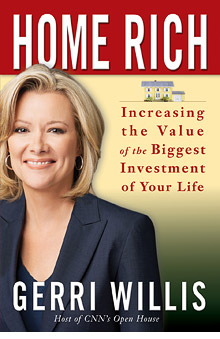High bank fees for hard-up customers
Strapped for cash, considering a payday loan or getting a prepaid card for unemployment benefits, be sure to read the fine print.
 |
| For more information on managing your largest investment, check out Gerri Willis' 'Home Rich,' now in bookstores. |
NEW YORK (CNNMoney.com) -- Fees are big money makers for banks, savings and loans, and credit unions. But that doesn't mean you have to pad their bottom line. Here's you can fight back against those fees.
1. Know what type of loan you're getting into
We've told you to stay away from payday loans at all costs. Be leery of all short-term loans.
Payday loans -- also called cash advances -- are short-term cash loans that don't require a credit check. And these short-term loans typically cost 400% to 5,000% interest if annualized.
Now, some credit unions are offering short-term loans couched as Payday Loan Alternatives. Some of these loans are no better than regular payday loans.
Keep in mind that it's against the law for federally chartered credit unions to charge more than 18% on loans, but some credit unions charge excessive fees that drive up the effective rate to as much as 455% according to the National Consumer Law Center.
Fees you should be on the lookout for: application and participation fees.
If you're really strapped for cash and you need money immediately, negotiate a payment plan to your lender. Stay away from short-term loans. It will just keep you in debt.
2. Don't get caught up in paying fees on your unemployment benefits
Instead of getting paper checks for unemployment benefits, prepaid cards are being distributed in about 30 states.
The National Consumer Law Center says fees for using the prepaid cards range from 40 cents to a high of $3 per transaction. Even some banking services that are normally free -- like checking your account over the phone or inactivity -- cost cardholders according to Creditcards.com.
If you have one of these cards, make sure you read the fine print. You can skip the headache all together by choosing the "direct deposit" unemployment payment option over the prepaid card -- and have your money immediately deposited into your regular bank account. Find out if this option is available to you.
3. Skip overdraft protection
Overdraft fees are what your bank charges you if you don't have enough money in your account to cover the transaction.
About 75% of U.S. banks automatically enroll their customers in automatic overdraft protection services according to the Federal Reserve. And at $35 a pop, that's an expensive tab.
The Fed is considering whether to crack down on automatic overdraft protection that's triggered if you use a debit card to purchase something or if you use your ATM to get cash.
The proposals include the provision that customers would have to either opt-in or opt-out of overdraft protection. Representative Carolyn Maloney also introduced legislation that would require you to be warned before you overdraw your account.
In the meantime, make sure you have access to your checking account online so you can keep tabs on your balance. You should also link your checking to your savings account. This way if you go over your limit in your checking account, your savings can be tapped. You will pay a nominal fee, but it'll be much cheaper than overdraft penalties.
Got a financial dilemma? Go to CNNMoney.com/helpdesk to submit questions, read the Help Desk articles and check out new Help Desk videos. And tune in to CNN's Newsroom Tuesdays and Fridays, when Gerri Willis and other experts answer your questions. ![]()

